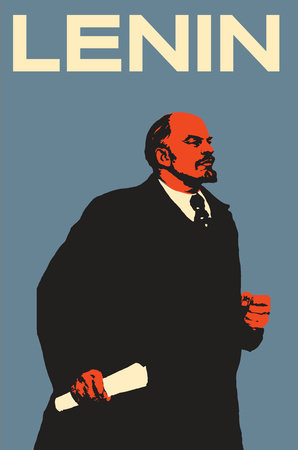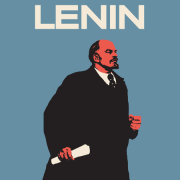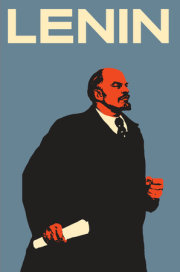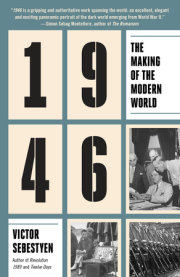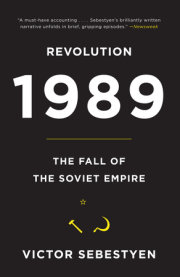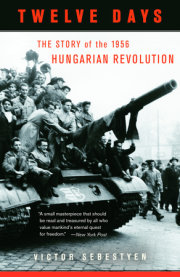1
A Nest of Gentlefolk
‘Don’t worry about Lenin. The man is not dangerous.’
Prince Georgy Lvov, the first post-imperial Prime Minister of Russia
All of the most important relationships in Lenin’s life were with women. He had very few close male friends and nearly without exception he lost those he made, or they fell by the wayside, because of politics. Men had to agree with him wholesale and bend to his will or be dropped from his inner circle. As a confidant for many years in exile recalled: ‘I began to separate myself from the revolutionary movement . . . and thus completely ceased to exist for Vladimir Ilyich.’ By the time he was thirty-three the only man he addressed by the intimate Russian ‘ty’ rather than the formal ‘vy’ was his younger brother Dmitry.
For most of his life Lenin was surrounded by women – his mother, sisters, his wife of a quarter of a century, Nadya; and his mistress Inessa Armand, with whom he had a complex romantic attachment, as well as a close working relationship, that waxed and waned in intensity over many years. During a decade and a half of exile, in various cramped lodging houses throughout Europe, he lived in easy, friendly familiarity with his mother-in-law, a woman of strong opinions that differed markedly from his own.
Invariably, Lenin’s women have been dismissed as mere drudges who performed domestic chores for him or were allowed to handle relatively simple and mundane political tasks. This is misleading. Lenin had more progressive and advanced views about the role of women than most of his male contemporaries in the revolutionary movement – though it is true that this does not set the bar particularly high.
In many ways, Lenin the great radical was a conventional Russian bourgeois man of the late nineteenth century: hardly a feminist in the modern sense of the term. He expected the women close to him to cosset him, fuss over him and look after him, which they did. But he listened to them and took them as seriously in political matters as he did men.
His wife, Nadya, is frequently portrayed as little more than his secretary, an amanuensis with no opinions of her own. Yet there was much more to her than that. She was a revolutionary when she met him, had been jailed and exiled to Siberia before she married him, and she played a vital role alongside him in the underground conspiratorial network that kept the flame of revolution alive in Russia before 1917. She wrote no works on Marxism or philosophy, seldom spoke up about political tactics or policy, and rarely contradicted him, but Lenin relied on her practical skills and sound judgement. She ‘ran’ dozens of secret Bolshevik agents throughout the Russian empire and knew every aspect of the Party organisation. Most importantly, Nadya kept her husband’s temper and fast-changing moods in check, which often demanded immense tact.
Inessa Armand was another woman whose role in his life has been misunderstood, or – in the case of the Soviet authorities after Lenin’s death – deliberately ignored. For ten years until she died in 1920 they had an on-off love affair. Armand was central to his emotional life. She was also among the best-known women socialists of her generation, one of Lenin’s closest aides, trusted to perform the most confidential tasks. Often she represented him at international gatherings of revolutionaries, a responsibility he delegated to very few people. She held positions by Lenin’s side in Moscow after the Revolution. Frequently she disagreed with him and plainly told him so, yet they remained inseparable. Everyone who knew her – including Lenin’s wife, who became her close friend in a curiously touching and devoted triangular relationship – understood how important she was to him. Yet after he died a ‘cult’ of Lenin was developed by his successors which encouraged worship of him as a secular icon representing the pillar of Bolshevik rectitude and she was all but written out of Soviet history books. In the five years before 1917 he wrote many more letters to Inessa Armand – on personal and political matters – than to anyone else. Their correspondence and her diaries were censored for nearly seventy years until the Communist state that Lenin founded collapsed.
Two of Lenin’s sisters survived past their teens and worked with him closely in the revolutionary underground. Anna Ilyinichna Ulyanova, born in 1864, was his elder by six years; Maria was eight years younger than he. Both were repeatedly jailed or exiled during the Tsarist regime for subversive activities; they helped to smuggle underground agents and socialist literature into and out of Russia. After the Revolution they held responsible jobs in the Soviet regime. For many years in exile in Europe, one or both of them – usually Maria – shared his home, with Nadya and his mother-in-law.
Throughout his life Lenin relied on a network of devoted women totally loyal to him – and, most of them, to his revolutionary cause. They made great sacrifices for his career and at times took enormous personal risks on his behalf: Revolution was a dangerous business. He could, and sometimes did, take their faith in him for granted. But the commitments went both ways.
Many ruthless and cynical men are sentimental about their mothers. Lenin used to say frequently to family and comrades, ‘Mother . . . well, quite simply, she’s a saint.’ He saw her rarely for the last twenty years of her life – she died in 1916, while he was in Swiss exile – but he was a devoted, not merely a dutiful, correspondent. Wherever he was on his wanderings about Europe he wrote to her regularly. The letters were rarely about politics or his literary/journalistic work, but he reported, often in minute detail, on his domestic arrangements, his health and his travels. Many are of a ‘nature notes’ type about his hunting trips or excursions in the Alps, one of his great passions being walking in mountains and the untamed countryside. His letters home are invariably addressed to ‘Darling Mother’ or ‘Mamoushka Dearest’. His last, a few weeks before her death, ends: ‘I embrace you warmly my dearest and wish you vigour.’ Lenin was petulant, ill-tempered and irascible, especially as he grew older, but his mother was the one person he never complained about to anybody, the only one to whom he always showed unqualified love.
Maria Alexandrovna Blank was born in 1835 in St Petersburg. Her father was an eccentric, a martinet and – a fact kept strictly secret by the Soviet authorities after Lenin’s death – a Jew. He had been born Sril (the Yiddish form of Israel) Moiseyevich (Moses) Blank in Odessa, but while studying medicine he converted to Orthodoxy and changed his first name and patronymic to Alexander Dmitriyevich. He travelled widely in Europe after qualifying as a doctor and married the daughter of a wealthy German merchant, Anna Groschopf. She was a Protestant. Under the restrictive religious laws of Tsarist Russia, his wife was required to convert to the Orthodox faith, but she refused and brought up her six children as Lutherans.
Alexander Blank began as an army surgeon, later became a police doctor and, finally, an inspector of hospitals at Zlatoust, in the vast province of Chelyabinsk in western Siberia. This gave him the civil service rank of ‘state councillor’, which entitled him to claim noble status. When he retired in his fifties he registered as a member of the nobility of Kazan and he bought an estate, Kokushkino, about thirty kilometres north-east of the city, with a fine manor house and forty serfs who worked the land.
Maria Alexandrovna’s mother died when she was three. Her father began living with his late wife’s sister, Ekaterina von Essen, herself widowed. It was a shocking ménage for those days and Blank wanted to make an honest woman of his sister-in-law. He tried to marry her, but the marriage was illegal in the eyes of the Church and the couple were refused permission. Her money helped to buy the Kokushkino estate and they remained together until she died in 1863.
A quiet, strong-willed, introverted woman, Lenin’s mother had dark-brown hair, a slim figure and dressed elegantly, though rarely in the height of fashion. There was no kissing or embracing within the household and Maria Alexandrovna generally discouraged displays of emotion. She was the dominant figure at home, deeply respected and revered by all her children. ‘She had our love and obedience,’ the eldest Ulyanov daughter, Anna, recalled later. ‘She never raised her voice, and almost never resorted to punishment.’
She was long-suffering and always sheltered her children from the reduced circumstances they would face following family deaths and the constant attention of the secret police. She was frugal but never mean. Intelligent and well educated, she never supported – and often did not understand – her children’s radical politics. She was certainly not a Marxist or a revolutionary of any kind. But she knew better than to quarrel with her children over a political issue or ask too many questions about their illegal activities, whatever the suffering their beliefs would bring them. Few of her letters to her son Vladimir have survived, but in those she barely mentioned politics once. To Maria Alexandrovna, family came first.
At various points all of her grown-up children were jailed or exiled, on occasions several of them at once. She would always move near their prison or to a town as close as possible to their place of exile. Often she would humiliate herself pleading with officials to release one of her daughters or sons, or to treat them more leniently. Though never rich, she was comfortably off and all of them relied on her money for prolonged periods. She sent them cash, clothes, books, food parcels and never appeared to complain about being asked. Vladimir would request help more than any of her other children, though at times he received ample funds from elsewhere. For some years he awarded himself a salary from Bolshevik Party funds, but he earned little from his books and journalism. Life as a professional revolutionary could be precarious and at times he was short of ready money; well into his forties he could not have survived without regular help from his mother.
Vladimir possessed little of the serenity and patient forbearance of Maria Alexandrovna Ulyanova, but he did inherit other features of her character. ‘No sooner had I come to know his mother than I discovered the secret of Vladimir Ilyich’s charm,’ said Ivan Baranov, a comrade from Lenin’s early revolutionary years.
His father’s ancestry was as problematic as his mother’s for Soviet historians. The last official Lenin biography published in the USSR, which appeared in the 1950s, stated that his father, Ilya Nikolayevich Ulyanov, hailed from ‘poor lower-middle-class people from Astrakhan’, which hides more than it tells. Lenin’s paternal grandmother, Anna Alexeyevna Smirnov, was an illiterate Kalmyk woman with Central Asian roots who possessed the typical looks of her ethnic origin. Most physical descriptions of Lenin mention his ‘Mongol eyes’ and high cheekbones, but the Soviets systematically suppressed information about his grandparents. They would not have fitted neatly with the carefully burnished official image of the founder of Bolshevism, who had to be presented as a Great Russian through and through.
Ilya was born in 1831 and both his parents died young. He was brought up and given a good education by his uncle Vasily, a prosperous tailor and merchant who ran a successful business in Astrakhan, a smelly fishing town along the delta where the Volga flows into the Caspian Sea. He qualified as a teacher of the sciences and taught at a series of secondary schools in provincial towns in southern Russia. He married in 1863 and taught in Nizhny Novgorod until 1869, when he was given a big promotion as Inspector of Schools in the Simbirsk Region, a job that won him the rank of a hereditary noble.
Of all the Ulyanov children, Vladimir looked the most like his father. Ilya Ulyanov had slanted eyes that flashed amber, a big domed forehead and reddish hair which he began to lose in his early twenties. Like his son he couldn’t pronounce his ‘r’s properly and on occasions he had a hint of a lisp. He was more outgoing than his wife and enjoyed company. He was away much of the time on tours of inspection around the vast schools district under his supervision. Lenin’s mother, although nominally Lutheran, seldom went to church. His father was religious and ensured that the children were brought up Orthodox in a traditional Russian manner.
He was a thoroughly decent man of liberal views, who believed in gradual reform and evolutionary change through education – the kind of well-meaning bourgeois that his son would come to despise and scorn more bitterly than he did a diehard reactionary. Ilya revered Alexander II, the ‘Tsar Liberator’ who emancipated the serfs in 1861 and launched a series of other modest measures to modernise the Romanov autocracy. After he was assassinated in 1881 by terrorists from the People’s Will revolutionary group Ilya Ulyanov wept for days. In full-dress civil service uniform he attended the memorial service at Holy Trinity Cathedral in Simbirsk. He was a proud member of the establishment. As far as is recorded he was in contact with only one known ‘subversive’, the Ulyanov family doctor, Alexander Kadyan, who had been sent into internal exile by the secret police and was forced under the terms of his sentence to stay within the town. But the acquaintanceship was entirely professional.
‘Our father was never a revolutionary,’ Anna wrote in her short history of the family. ‘In those years, being in his forties and head of the family, he wanted to protect us, his children, from that way of thinking.’ Her sister Maria agreed. ‘Father was totally loyal to the Tsarist regime, certainly not a revolutionary,’ she told a younger comrade. ‘We don’t really know enough to say what his attitudes were to the radical activities of the young.’
Lenin himself never tried to conceal or fudge his roots, though the Soviets later created the myth that the founder of the world’s first workers’ state ‘came from the people’ and was from ‘low social origins’. To many of those who knew him, his manner and bearing were revealing. Maxim Gorky, a convinced socialist who was born into deep poverty and really did come from the people, said that ‘Vladimir Ilyich has the self-belief of a “leader”, a Russian nobleman not without some of the psychological traits of that class.’
Copyright © 2017 by Victor Sebestyen. All rights reserved. No part of this excerpt may be reproduced or reprinted without permission in writing from the publisher.

